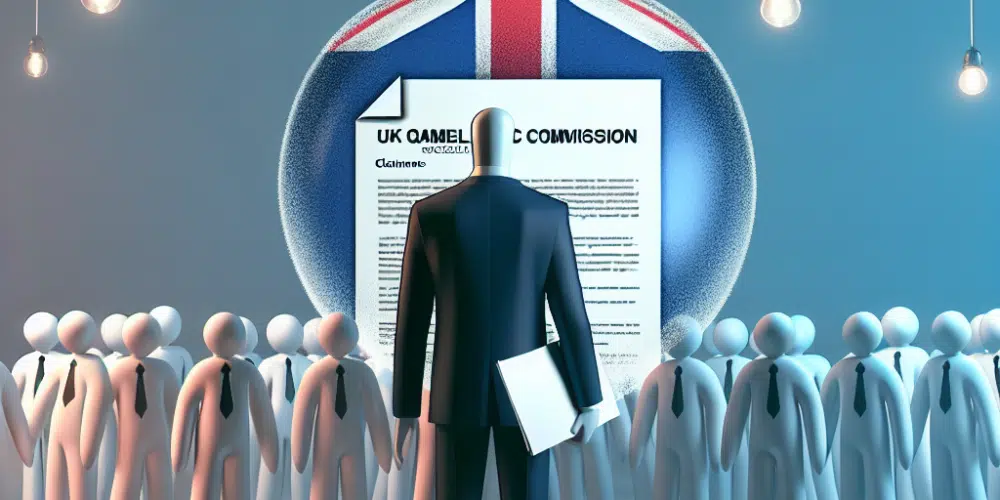Billionaire media mogul Richard Desmond is making headlines as he takes on the United Kingdom’s Gambling Commission (UKGC) with a hefty damages claim of GBP 1.3 billion, equivalent to approximately $1.58 billion. This legal dispute has captured widespread attention due to its potential implications, particularly for taxpayers who might end up footing the bill if Desmond triumphs.
Desmond, through his Northern & Shell investment firm and the New Lottery Company (TNLC), claims that the UKGC made “manifest errors” during the complex bidding process for Britain’s largest public sector contract. This contract, a 10-year National Lottery license, was awarded in 2022 to Allwyn, a company owned by Czech billionaire Karel Komárek. Allwyn has been operating the National Lottery since 2024.
The financial stakes are high. A successful damages claim could significantly impact the funds allocated for charitable causes, which are supported by lottery revenues. The National Lottery contributes around GBP 30 million (about $36.4 million) weekly to such causes. If Desmond’s claim is successful and exceeds the available funds, the financial shortfall would likely be absorbed by taxpayers.
Desmond’s case rests on the argument that the Gambling Commission provided feedback to rival bidder Allwyn at a critical stage of the process, which TNLC argues was a “very serious breach” of competition rules. Allwyn, now embroiled in the case, has aligned itself with the UKGC in defense of the contract award, which is pivotal to its reputation and business operations.
Despite attempts by the UKGC to settle the dispute with Desmond’s Northern & Shell PLC, the issue has escalated to a bitter legal showdown. At the High Court, Desmond’s legal team presented their argument to Mrs Justice Smith, asserting that the bidding process was fundamentally flawed. They contend that the competition should have been restarted after the terms of the contract changed post-award.
The Gambling Commission, however, stands by its process, describing it as thorough and rigorous. In their legal defense, the commission argued that Desmond’s bid was unrealistic and performed poorly in the competition. Sarah Hannaford KC, representing the UKGC, challenged the credibility of Desmond’s claim, dismissing it as “hopeless.” She remarked that it was unusual for a bidder who performed so poorly to assert that they should have won, suggesting that TNLC’s belief in their potential success with more feedback was merely “wishful thinking.”
This legal battle unfolds against a backdrop of intense scrutiny over how public sector contracts are awarded. The National Lottery, with its considerable contributions to good causes, remains a significant public interest issue. Desmond’s case raises questions about transparency and fairness in the bidding process, key components for maintaining public trust.
However, opinions on the matter are divided. Some industry observers suggest that Desmond’s compensation claim, if successful, could set a precedent affecting future public sector contract awards. It underscores the importance of clear, consistent, and fair processes in high-stakes competitions. Others caution against viewing the case purely from a financial perspective, noting that any payout could divert funds away from the communities and projects that rely on lottery proceeds.
The case also highlights broader economic concerns. As the National Lottery plays a crucial role in funding various social initiatives, the potential redirection of these funds to cover damages could have a ripple effect. Critics argue that such a financial shift might undermine the very purpose of the lottery, potentially eroding public confidence in its ability to support good causes effectively.
Yet, there is a counterpoint to be considered. Some argue that Desmond’s pursuit of justice, if grounded in genuine procedural errors, is vital for ensuring accountability and fairness in public sector dealings. It serves as a reminder that large contracts should not only be awarded based on financial might but also on adherence to rules and transparency.
In the coming months, the court’s decision will be closely watched, not just by those in the gambling and media industries, but also by policymakers and the general public. The outcome of this case could influence future contract awards and impact the regulatory frameworks governing competitive bids.
For now, the legal battle continues with both sides presenting their arguments, each convinced of their position. Desmond is determined to see his claim through, while the UKGC remains steadfast in its defense of the process it employed. As the courtroom drama unfolds, one thing is clear: the implications of this case extend far beyond the immediate parties involved, touching on issues of governance, public trust, and the responsible management of public funds.

















